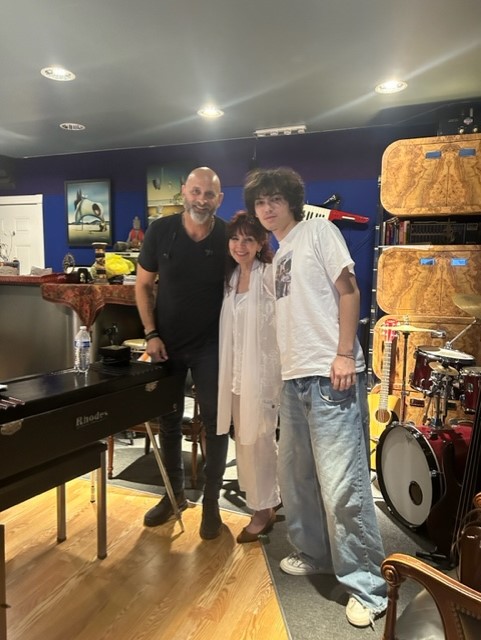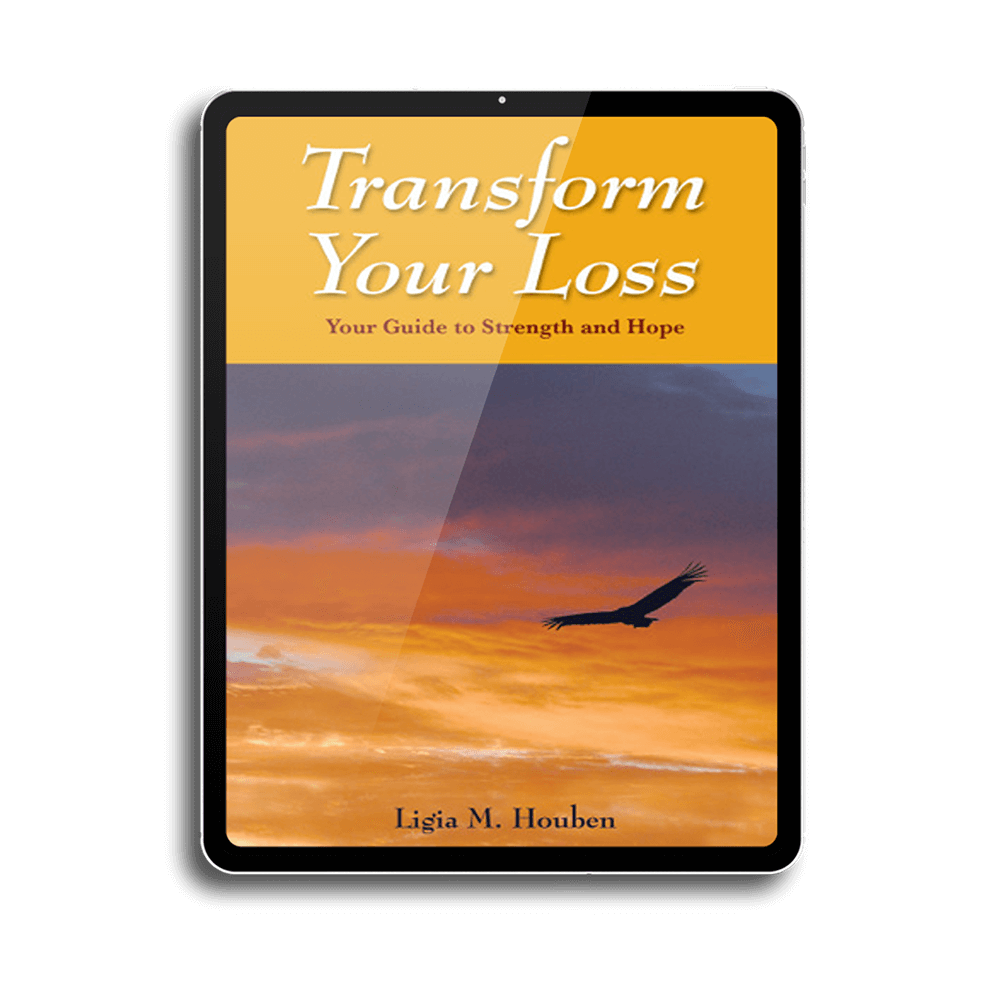
by Ligia Houben | Nov 26, 2023 | blog, Blog US
Introduction
Grief is a journey with unique paths, and it was uniquely challenging for Leonidas Reimer, a young adolescent. Losing Kennedy, his girlfriend, to suicide, Leonidas found himself engulfed in a sea of emotions. However, in the depths of his sorrow, he discovered solace and expression through music. His story is one of healing and transformation, a narrative that resonates with the power of purpose and passion. Although Leonidas’ world turned upside down when he lost Kennedy, he was determined to channel his pain into something meaningful.
The Healing Power of Music
Music became Leonidas’ refuge, and he started working on his album, “Songs for a Long Train Ride Home.” He poured his heart into melodies and lyrics, each note a step towards healing. His songs, raw and honest, are a tribute to Kennedy; they are a way to keep her memory alive.
Because music is his passion, I wanted him to meet Marlow Rosado, an amazing human being and accomplished musician. He is the winner of two Grammys and producer of my upcoming audiobook in Spanish, “Déjame vivir mi duelo…y sanar de adentro hacia afuera” (Allow Me to Grieve…and Heal From the Inside Out). Leonidas visited Marlow’s studio when we were recording, and he had the opportunity to learn from Marlow’s experience and share his story.
In the sanctuary of Marlow’s studio, surrounded by instruments and echoes of creativity, Leonidas shared his album “Songs for a Long Train Ride Home.” Marlow listened to Leonidas’ journey, and with an open heart, he offered more than just musical advice; he provided sensitive insights on healing through purpose. Leonidas’ encounter with Marlow was profound as it confirmed his mission: to use his music as a beacon for others traversing the dark waters of grief. It touches my heart to see how Leonidas has embraced the transformative power of music, demonstrating how it can be a vessel for grief, carrying it from the shadows into the light.
Leonidas’ story is a poignant reminder that a melody of hope can emerge in the depths of despair. Through his music, he honors Kennedy’s memory and offers a guiding light to those who have experienced similar loss. Furthermore, his journey continues after his music. He is also working on a film, “The Kennedy Project,” to introduce a proactive stance to suicide prevention.
Reflection
Grief is a profound and complex emotional response to loss, particularly when we lose someone significant in our lives. Although the process varies significantly from person to person, being witnessed in grief is crucial. What helps the most is to express our emotions in a safe and understanding environment, validating our feelings and experiences. Healing from grief is a gradual process of re-engaging with life, finding new meanings, and living life with a renewed sense of purpose.
As I reflect on Leonidas’ journey, I am confident he will continue showing the resilience and compassion of his human spirit, and his ability to find solace and meaning in creativity.

by Ligia Houben | Jun 10, 2018 | Blog US
According to the famous suicidologist, Edwin Schneidman, suicide happens when a person is experiencing psychache (psychological pain) which is impossible to bear. In his seminal work, Definition of Suicide, Schneidman stated that the most common emotion a person who is contemplating suicide experiences is hopelessness-helplessness. Taking this valuable information into consideration, we can take a closer look at what is happening in our society. Based on a recent study of the Centers for Disease and Prevention in Atlanta, in the last two decades suicide has increased more than 30%. Moreover, in The Last Dance. Encountering Death and Dying, the textbook I used when I taught Death and Dying at Florida International University, it shows that in 2005 there were almost 30,000 suicides a year in the United States. In 2016 the CDC shows there were nearly 45,000 deaths. These statistics show an increase of 50% in 11 years. What is provoking this increase? Who is dying from suicide and how can we prevent it?
This topic is getting a lot of attention after the unfortunate deaths from suicide of two famous people this past week- Kate Spade and Anthony Bourdain. These tragic incidents have promoted discussion about the causes of why people would take their own lives.
The CDC report shows us that suicide not only happens when the person suffers from a mental health condition. It may occur when the person doesn’t possess the necessary life skills to help them deal with stressful life events such as financial difficulties, job loss, and health issues among others. In older adults, the fact of growing older can also be a cause of suicide. Furthermore, it is increasing among middle-aged men as Martin Daubney points out in his article, Why does no one care when boys fail at school, and middle-aged men kill themselves? Daubney mentions a study in the UK that shows a 40% increase in suicide among middle-aged men in the last five years. In the United States, the highest suicide rate (19.72%) is among adults (45-54 years of age).
It is important to know that suicide is happening on a significant scale and it’s necessary we start having the conversation openly, so we can focus on prevention and awareness. In the seminars I impart nationwide on Transforming Grief and Loss. Strategies For Your Clients To Heal The Past, Change The Present and Transform The Future, we talk about how to build resilience, and suicide is always central to our discussion. Experiencing the loss of purpose and meaning, seems to be a major factor to lose hope for a future, and find suicide as the only way to end a life that is not fulfilling.
Let’s keep in mind that not only adults die from ending their lives, but also adolescents and children. Among the leading causes there seem to be a change of schools, peer pressure, and bullying (Grim, 2012). In a recent seminar, a counselor at a university shared with us that 40% of her clients have suicidal ideation.
How can we help
If you know someone who is suicidal, always validate their emotions. Remember that for them the pain is too vast to handle, and suicide is their only way out. Allow them to talk to you about how they feel instead of diverting the conversation (e.g., you’ll be OK!) and provide support. Please remember not to say others have it worse. Sometimes while trying to help, people make those comments, and they do not help much. Instead, provide information about hotlines and direct them to a professional who can help them find ways to cope with their life stressors.
Warning Signs
- Changes in personality or behavior
- Giving away possessions
- Talking about killing themselves or the desire to die
- Changes in eating and sleeping patterns
- Isolation
- Using alcohol or drugs
Risk Factors
- Feelings or hopelessness
- Mental disorders
- Health issues
- Previous ideation or attempts
- Substance abuse
- Financial losses
- Relationship problems
- Job loss
- Isolation and lack of resources
- Loss of a loved one
- Lack of purpose or meaning
- Fear of aging
- Lack of coping skills
- History of aggression
Lastly, let’s all keep in mind that understanding what may provoke someone to die from suicide can help increase awareness, participate in suicide prevention, and have an open and compassionate conversation.
Resources
https://suicidepreventionlifeline.org/how-we-can-all-prevent-suicide/
Lenaars, Antoon A. Edwin S. Shneidman on Suicide. Suicidology Online 2010; 1:5-18. http://www.suicidology-online.com/pdf/SOL-2010-1-5-18.pdf
Schneidman, Edwin. PhD (1977). Definition of Suicide. Jason Aronson, Inc.: New York, NY.
Grimm, Joe, Ed. (2012). The New Bullying-How social media, social exclusion, laws and suicide have changed our definition of bullying, and what to do about it: Read the Spirit Books and Imprint of David Crumme Media, LLC.: Canton, MA
DeSpelder, Lynne Ann and Albert Lee Strickland (2005). The Last Dance. McGrawHill: New York, NY
https://www.telegraph.co.uk/men/thinking-man/11966292/Why-does-no-one-care-when-boys-fail-at-school-and-middle-aged-men-kill-themselves.html





